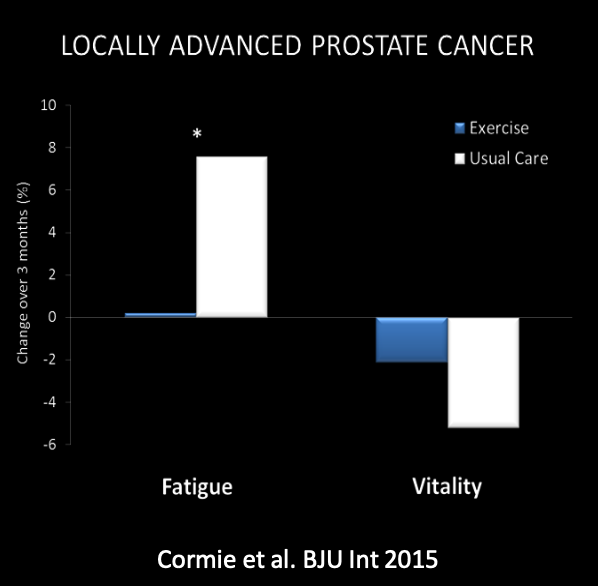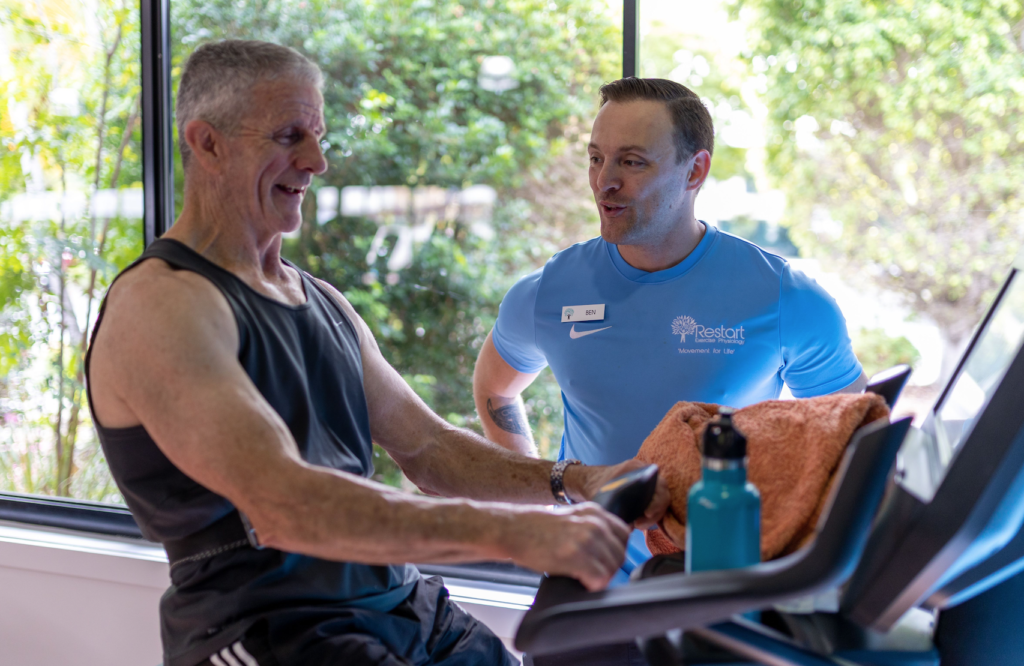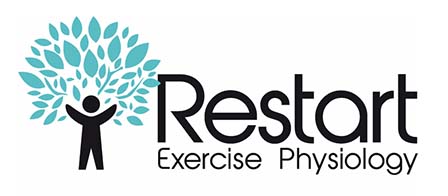When it comes to exercise for the management of cancer, perhaps the most impactful statement I have encountered comes from Professor Rob Newton of Edith Cowan University:
“Avoid a rest strategy. No matter what the cancer, what the treatment, what the stage of the journey is, you must engage in regular physical exercise, otherwise the outcome will be far worse.”
As an Exercise Physiologist, it is this philosophy that I impart on my patients, a mindset that I empower my patients to adopt.
As with any patient, exercise prescription should always align with their health and lifestyle goals. There are of course special considerations for those with prostate cancer (PCa) to ensure safety and avoid exacerbation of symptoms.
But when cancer-related fatigue strikes (an ailment that affects ~3 in 4 PCa patients), what are the best strategies to counteract this?
Optimising numerous lifestyle factors, for example nutrition and hydration status; implementing strategies to improve sleep hygiene; positively managing mental health; and planning potentially strenuous activities in advance are all important aspects of any holistic health-management protocol. Additionally, one of the best fatigue-reducing strategies is regular physical activity.
A 2015 study by Cormie et al. investigated the impact of exercise vs usual self-care activities on cancer-related fatigue over a 3-month period. The exercise group rated considerably better with regards to fatigue; exercise also mitigated PCa’s negative effects on vitality.

Further studies support this effect. A 2017 study termed the ‘Effects of Different Exercise Modalities on Fatigue in PCa Patients Undergoing Androgen Deprivation Therapy (ADT)’ by Taaffe and colleagues showed that numerous modes of exercise have comparable effects on reducing fatigue and enhancing vitality during ADT. Perhaps most encouragingly, the patients with the highest level of fatigue and vitality reported the greatest benefits.
It may come as a paradox that engaging in physical activity when fatigued is likely to improve energy levels and thus reduce fatigue – on first glance it would seem the opposite. Having worked with many cancer patients during my 10+ years as an Exercise Physiologist, I can attest to the ‘up and down, day to day’’ nature of cancer-related fatigue, and the effect this has on a patient’s ability to exercise. On days worse than others, this may mean a steady 5-minute cycle followed by some gentle stretching and mobility work. Maybe not even that. On better days, a more vigorous workout to raise a sweat and feel the pump 💪
The takeaway message is the importance that doing any amount of movement and activity is better than nothing. The cause of fatigue amongst cancer patients is often not well understood, however the positive benefits of exercise are.
The problem solving, goal-setting, and reflection that accompanies the act of finding the right type of activity for you and your stage of recovery will help to not only reduce fatigue, but reduce cancer-associated anxiety, improve self-confidence and ultimately improve quality of life.

Should you require support on this important endeavour, speaking with your local Exercise Physiologist is a great place to start.
Yours in exercise,
Luke

0 Comments